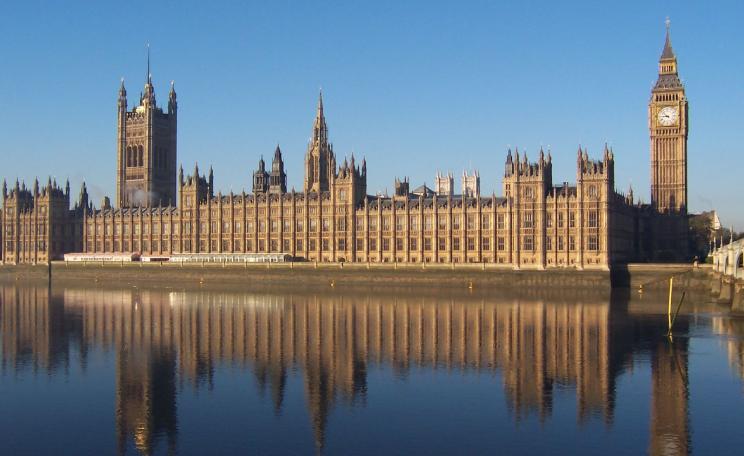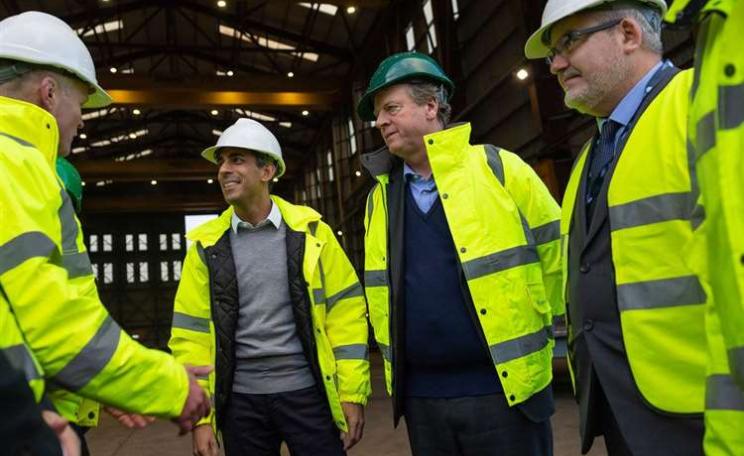x
The number of people crossing the English Channel seeking refuge has risen in recent weeks.
This has been accompanied by the predictable right-wing decrying of the ‘invasion’, and populist politicians and commentators calling for the criminalisation of search and rescue services.
The context is a surging right-wing political activism. This is being led by the ruling Tory party, which is seeking to use its strong government majority to criminalise a range of dissenting, rebellious - or just-not-Tory - behaviours while they have the chance.
Prisons
This explains the proposed new Borders and Nationality Bill, which would criminalise refugees and enable the UK Government to replicate the horrors of Australia’s so-called off-shore detention center programme, where refugees are left to rot for years without hope of escape and where abuse has become so entrenched as to become part of the ‘deterrent’.
The deepening of the criminalisation and persecution of refugees and migrants is unfortunately far from exceptional. The Tory government has introduced a number of authoritarian policies, including new policing bills and anti-protest bills.
There are few wealthy countries that do not criminalise and brutalise ‘unauthorised’ forms of migration: from sinking boats in the Mediterranean to destroying water caches left in the desert for migrants crossing the desert into the USA, from the brutality of border guards in Hungary to paying militias in Libya to attack migrant camps.
Migration is highly likely to increase due to the fact as many as 200 million people will be displaced through the impacts of climate breakdown. The ‘border industry’ is therefore also set to grow, with some individuals and companies profiting handsomely.
But fear not – because we are now being assured that this growth will be ‘green growth’. Just as US prisons are introducing wildlife-friendly electrified fencing, the behemoths of the security industry are planning on a net zero future.
Employer
The private global security industry is worth $360 billion, and with between six and 10 percent growth predicted for the next five years is likely to reach upwards of $526 billion by 2026.
The privatisation of border controls, from checking visas to detaining migrants and running detention centres, has created a thriving global business environment predicted to grow by between 7.2 percent and 8.6 percent per year, reaching a total as high as $68 billion by 2025.
Along with the USA, the UK has also privatised the deportation of migrants, creating yet another avenue for profiteering. Indeed, it's good times for the USA and UK security industries, private and public.
In the UK, the industry grew by 17 percent between 2012 and 2017, and doubled its turnover to £12.2billion. Much of this came from selling repressive technologies to other countries.
And the industry is a massive employer, directly employing 100,000 people, and supporting almost 70,000 jobs indirectly.
Profitable
Employment in the sector is set to grow rapidly. Just as with the explosion in mercenary and security industries and employment around the USA’s oil wars, the policing of migration is fuelling a corporate bonanza.
The future of climate migration – of people being forced to move due to the effects of climate change – is often subject to either dramatic over-statement or under-statement.
As with most displacement, much if not most climate migration will be internal migration: movement within a country. We are already seeing this around the world, from Mozambique to the UK: the former through disaster and the latter, as in other wealthy countries, through a process of managed retreat.
Yet, thinking internal migration will be treated less harshly is a mistake if the recent experiences of those made homeless in California due to fire is anything to go by. Chico police have been violently evicting homeless encampments, including those of people made homeless by recent forest fires.
There will still likely be tens of millions of people displaced across national borders. Alongside profitable efforts to stop them entering wealthy countries, there will be efforts to ‘keep them in place’ – that is, to make it difficult to leave places devastated by climate breakdown.
Elections
The future borders of the wealthy world will continue to extend profitably into the Global South, from ‘soft’ options such as the ‘great green wall’ of the Sahara to peacekeeper missions and quasi-permanent UN refugee camps,
Given the lack of government ambition at a global level, and the fact that the so-called ‘climate’ plans of just four of the G20 countries alone risk pushing climate change past five degrees Celsius, the future of net zero border security looks strong.
It’s also likely that the green security jobs of the future will be breading grounds for the far right, as with private security and prisons in the USA, or detention centre security in Australia.
As with the UK’s islamophobia and the surveillance and policing industry, its likely this toxic mix will not only be tolerated but supported – profitable growing industries are rarely sanctioned, especially when they also enable right-wing political parties to win elections.
Green industries
Indeed, along with coastal flood defences and the proposed EU carbon border tax, we could see the rise of a complex of privatised, xenophobic systems that ‘climate proofs’ the borders of the world’s wealthy countries while providing green jobs in sustainable security industries.
This industry would provide a further toxic narrative to the public’s understanding of migration: We must hold back the wreckage and flotsam of humanity washed ashore in the flood.
This would build on the migrant-as-criminal stories of the 80s and 90s, and the terrorist image of the 00s and 10s. In doing so, the new story only further racialises climate change, legitimating the horrors of border controls.
If it’s not clear already, the threat of a green border industry should make it obvious that not all green industries are good, and not all net zero job creation is something to be celebrated. The struggle against climate change must include one against the horrors of the border industry.
This Author
Dr Nicholas Beuret is a lecturer in management and ecological sustainability at the University of Essex. His research has been published in journals including Antipode, Science and Culture and South Atlantic Quarterly.







